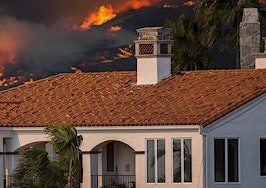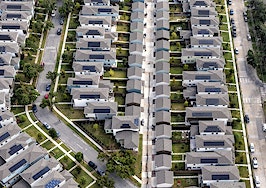As of Tuesday, California’s Camp, Woolsey, and Hill fires have scorched 252,853 acres and have incinerated more than 18,000 structures — all of which resulted in the confirmed deaths of 82 residents according to Cal Fire’s latest estimates, as well as 699 still missing. As firefighters near full containment, Californians are beginning to plot the recovery process that includes rebuilding nearly 13,000 homes. To assist in the recovery, consider donating to the California Association of Realtors Disaster Relief Fund or one of the many reputable assistance organizations listed here.
In an emailed analysis, realtor.com chief economist Danielle Hale says the number of homes destroyed in the Camp Fire alone is equivalent to a staggering 18 months of active listing inventory. Considering the housing market before the fires, Hale estimates that residents impacted by the Camp Fire will have a more difficult time recovering than their neighbors to the south.
“The Camp Fire is already the most deadly and destructive fire in California history and it’s less than 50 percent contained [Editor’s note: it’s now 70 percent contained]. Its damage will be completely devastating to local home sales and prices for months to come, unparalleled by any other fire.”
As of October 2018, there were only 858 properties on the market in Butte County, and loss of more than 12,000 residences will result in an unstable local housing market for years to come.
“Looking forward, insurance dollars pouring into the area will help cover some rebuilding costs, but residents should expect a roller coaster ride of home prices and rents as inventory gets scooped up by displaced families,” Hale noted.
On the other hand, residents impacted by the Woolsey Fire are in a better position to recover. The median home value of homes within the fire boundary is $985,000 — $300,000 more than the rest of the homes in Ventura County. This fact, Hale says, suggests that homeowners may be able to better afford the costs of recovery.
“The destruction from the Woolsey Fire is far lower than it could have been. Out of 15,000 structures within the fire boundary, only 1,841 were damaged or destroyed,” she said. “We expect the housing market around the Woolsey Fire to slow in the months ahead as local homeowners assess damage and plan for the future.”
“[The median home value] suggests that those affected may have more resources to deal with the impact of the fire, and the tightest part of the housing market — affordable, entry-level homes — will be less affected,” Hale added.
In a previous interview with Inman, three experts echoed Hale’s estimates, saying that it could take anywhere from five to 10 years for housing markets to return to pre-fire levels after an initial price shock. Much of the recovery process is determined by how quickly (or slowly) homeowners are able to file insurance claims and have those claims approved, they said.
“I think in a perfect world, it’d take five years,” one expert said. “But I wouldn’t be surprised to see this play out for 10 years.”












